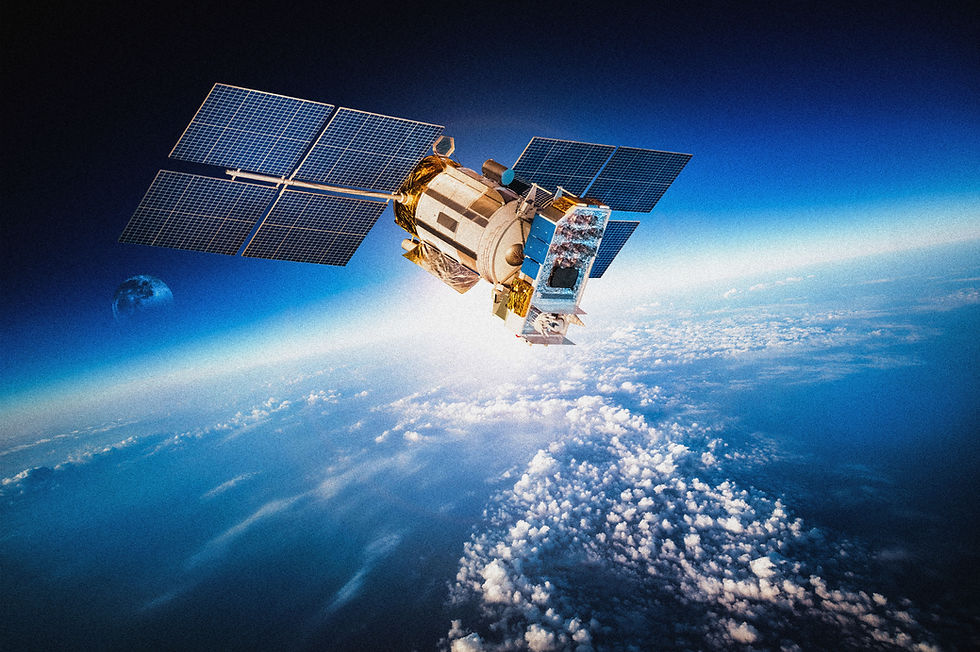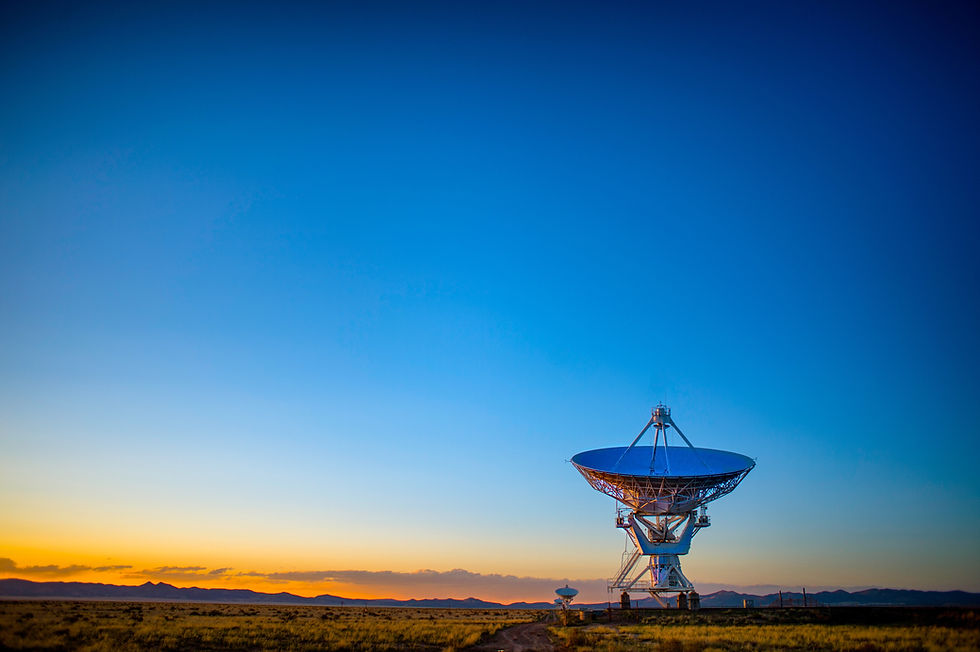The Ethics of Space Exploration: Balancing Science, Commerce, and Preservation.
- The Moolah Team
- Jul 11, 2023
- 10 min read
This blog post will examine the ethical considerations involved in space exploration, including issues related to commercialization, resource exploitation, and preservation.
We will discuss the potential benefits and risks of space mining and tourism, and explore the impact that human activities in space will have on celestial bodies and extra-terrestrial environments.
We will also consider the moral and philosophical implications of exploring the cosmos, such as our responsibilities to other sentient beings that we may encounter.
I. Introduction: The Ethics of Space Exploration
Space exploration has long been a source of fascination for humanity, as we have dreamed of venturing beyond the confines of our planet and exploring the cosmos. With advances in technology and increased interest from private companies, space exploration has become a rapidly growing industry, promising exciting new opportunities for scientific discovery, commercial ventures, and tourism.
However, as we venture further into space, it is important to consider the ethical implications of our actions. As we engage in commercial activities, such as space mining and tourism, we must weigh the potential benefits against the potential harm to celestial bodies and extra-terrestrial environments. We must also consider our responsibilities to other sentient beings that we may encounter in our exploration of the cosmos.
One of the most significant ethical considerations in space exploration is the issue of commercialization. Private companies such as SpaceX, Blue Origin, and Virgin Galactic are leading the charge in space tourism, promising to give regular people the chance to experience space travel. While this presents an exciting opportunity for many people, it also raises concerns about the impact on the environment and the potential risks involved.
In addition to space tourism, there is growing interest in space mining, with the potential to extract valuable resources from celestial bodies such as the Moon and asteroids. While this could have significant economic benefits, it also raises questions about property rights, resource exploitation, and the potential environmental impact.
Furthermore, there is a concern that commercialization could overshadow the scientific research that has traditionally been the driving force behind space exploration. As private companies invest more in space, there is a risk that they will prioritize profit over scientific discovery.
The second major ethical consideration in space exploration is the issue of resource exploitation. The extraction of resources from celestial bodies has the potential to be a lucrative industry, but it also raises concerns about the potential environmental impact. We must carefully consider the potential risks and benefits of any mining ventures, and approach resource exploitation from a sustainability perspective to ensure that any activities we undertake in space are done in a way that preserves these celestial bodies for future generations.
Finally, we must recognize the intrinsic value of celestial bodies and the importance of preserving them for future generations. These objects can provide insights into our own origins and the origins of the universe itself. As we explore space and potentially encounter other forms of life, it is crucial to consider our responsibilities to these beings. We must weigh the potential benefits against the potential harm to the existing ecosystem and consider the ethical implications of terraforming, or intentionally modifying a celestial body's environment to make it more hospitable for humans.
In conclusion, space exploration presents exciting new opportunities for scientific discovery, commercial ventures, and tourism, but it also raises important ethical considerations that must be carefully considered. As we explore the cosmos, we must balance the potential benefits and risks of commercialization and resource exploitation with the need to preserve celestial bodies and consider our responsibilities to other forms of life we may encounter. By approaching space exploration from an ethical standpoint, we can ensure that our activities in space are both sustainable and beneficial to all.

II. The Benefits and Risks of Commercialization
As discussed in the introduction, the commercialization of space exploration presents exciting new opportunities for scientific discovery, commercial ventures, and tourism. However, there are also significant risks and ethical considerations associated with these activities.
A. Benefits of Commercialization
One of the primary benefits of commercialization is the potential for increased funding for space exploration. As private companies invest more in space exploration, they bring new sources of funding and innovation to the industry, which can help accelerate scientific research and technological advancement.
Another potential benefit is the creation of new jobs and economic opportunities. Space tourism, for example, has the potential to become a multi-billion dollar industry, providing jobs and driving economic growth in areas that are currently struggling.
Commercialization can also help make space exploration more accessible to the general public. Private companies like SpaceX and Virgin Galactic are working to make space travel more affordable and accessible, which could open up new opportunities for scientific research and exploration.
B. Risks of Commercialization
While there are potential benefits to commercialization, there are also significant risks and ethical considerations that must be taken into account.
One of the biggest risks is the potential environmental impact of commercial activities in space. As we saw with the rise of industrialization on Earth, unchecked commercial activity can have serious negative consequences on the environment. In space, the risks are even greater, as there are limited resources and fragile ecosystems that must be preserved.
Another risk is the potential for accidents and mishaps during commercial activities. Space tourism, for example, is still a relatively new industry, and there are significant risks involved in launching humans into space. While private companies have made significant strides in developing safe and reliable space vehicles, accidents can and do happen, as we saw with the tragic loss of the Challenger and Columbia space shuttles.
Finally, there is a concern that commercialization could lead to the prioritization of profit over scientific discovery. Private companies may be more focused on generating revenue than on conducting scientific research, which could result in a missed opportunity to explore and understand our universe.
C. Balancing Benefits and Risks
To balance the potential benefits and risks of commercialization, it is essential to approach space exploration from an ethical standpoint. This means weighing the potential benefits against the potential harm to celestial bodies and extra-terrestrial environments, and ensuring that any commercial activities are done in a way that is sustainable and preserves these environments for future generations.
It also means recognizing that commercialization is not the only driver of space exploration. Scientific discovery has traditionally been the primary focus of space exploration, and it is essential that we continue to prioritize this aspect of space exploration even as commercial activities expand.
In conclusion, while commercialization presents exciting new opportunities for space exploration, there are significant risks and ethical considerations that must be taken into account. By balancing the potential benefits and risks and approaching space exploration from an ethical standpoint, we can ensure that our activities in space are both sustainable and beneficial to all.

III. The Ethics of Resource Exploitation in Space
One of the most pressing ethical considerations in space exploration is the issue of resource exploitation. As we continue to explore the cosmos, we will inevitably encounter valuable resources that could be used to fuel future space missions or to benefit life on Earth. However, the question of whether or not it is ethical to exploit these resources is a complex and multifaceted one.
A. The Case for Resource Exploitation
Advocates for resource exploitation argue that it is necessary in order to continue advancing space exploration and scientific discovery. Resources like water, minerals, and metals could be used to build future space stations, fuel rockets, or support human life in space.
Additionally, some argue that the resources found in space could help address some of the environmental challenges we face on Earth. For example, helium-3, a rare isotope found on the moon, could potentially be used as a clean and efficient fuel source for nuclear fusion.
B. The Case Against Resource Exploitation
Opponents of resource exploitation argue that it is ethically questionable to treat celestial bodies as sources of raw materials. They argue that the resources found in space are a common heritage of humankind, and should be used for the benefit of all rather than for the profit of a few.
There is also a concern that resource exploitation could lead to the destruction of valuable extra-terrestrial ecosystems. In order to access resources, it may be necessary to mine, drill, or otherwise disturb the natural environment of celestial bodies, which could have negative consequences for any potential life that may exist there.
C. Finding a Balance
As with the issue of commercialization, the key to addressing the ethical considerations around resource exploitation is finding a balance between the potential benefits and the potential risks.
One potential solution is to develop an international framework for managing resource exploitation in space. This could include creating regulations and guidelines to ensure that any resource exploitation is done in a way that is sustainable and preserves the natural environment of celestial bodies.
Another potential solution is to focus on developing technologies that allow us to use the resources found in space without having to disturb the natural environment. For example, technologies like in-situ resource utilization (ISRU) allow us to extract resources from the soil or atmosphere of celestial bodies without having to mine or drill.
D. Conclusion
The question of whether or not it is ethical to exploit resources in space is a complex and multifaceted one. While there are potential benefits to resource exploitation, there are also significant ethical considerations and potential risks that must be taken into account. By finding a balance between the potential benefits and the potential risks, and developing sustainable and responsible methods of resource exploitation, we can ensure that our activities in space are both beneficial and ethical.

IV. The Ethics of Space Preservation
As we continue to explore space, we must also consider the impact that our activities will have on celestial bodies and extra-terrestrial environments. This includes not only the physical impact of human presence, but also the ethical implications of our actions.
A. The Importance of Space Preservation
Preserving the natural environment of celestial bodies is important for a number of reasons. First, it is essential for protecting any potential extra-terrestrial life that may exist. Second, it is important for maintaining the scientific integrity of celestial bodies. Third, it is important for preserving the cultural and historical significance of celestial bodies.
B. Threats to Space Preservation
There are a number of threats to space preservation, including commercialization, resource exploitation, and human activity. Commercialization and resource exploitation, as previously discussed, can have significant negative impacts on celestial bodies and extra-terrestrial environments. Human activity, such as space debris and pollution, can also have negative impacts.
Additionally, there is a concern that human presence in space could lead to the introduction of invasive species or microorganisms, which could have devastating consequences for any potential extra-terrestrial life that may exist.
C. Preserving Space: A Shared Responsibility
Preserving space is not the responsibility of any one individual or organization. It is a shared responsibility that requires international cooperation and collaboration. This includes developing international agreements and guidelines for space exploration and establishing regulations for human activities in space.
Additionally, it is important for individuals and organizations involved in space exploration to prioritize space preservation in their decision-making. This includes developing sustainable and responsible methods of resource exploitation, minimizing human impact on celestial bodies, and reducing space debris and pollution.
D. Conclusion
Preserving space is essential for protecting any potential extra-terrestrial life that may exist, maintaining the scientific integrity of celestial bodies, and preserving the cultural and historical significance of celestial bodies. While there are significant threats to space preservation, it is a shared responsibility that requires international cooperation and collaboration. By prioritizing space preservation in our decision-making and developing sustainable and responsible methods of space exploration, we can ensure that our activities in space are both beneficial and ethical.

V. The Moral and Philosophical Implications of Space Exploration
As we continue to explore the cosmos, we must also consider the moral and philosophical implications of our actions. This includes our responsibilities to other sentient beings that we may encounter and the impact of our exploration on humanity's perception of our place in the universe.
A. Our Responsibilities to Other Sentient Beings
As we continue to explore space, there is a possibility that we may encounter other sentient beings. This raises important questions about our responsibilities to these beings. Should we treat them as we treat other humans? Should we attempt to communicate with them? How can we ensure that our actions do not harm them or their environment?
Additionally, there is a concern that our actions in space could have unintended consequences for any potential extra-terrestrial life that may exist. For example, our exploration could inadvertently introduce invasive species or microorganisms, which could have devastating consequences for these beings.
B. The Impact of Space Exploration on Humanity's Perception of Our Place in the Universe
Space exploration has the potential to change our perception of our place in the universe. It allows us to see the vastness and complexity of the cosmos and provides us with a new perspective on our own existence. However, it also raises important philosophical questions about our place in the universe.
For example, does the vastness of the universe and our place in it make us feel insignificant or does it inspire us to strive for greatness? How does our exploration of the cosmos impact our understanding of our own planet and the life that exists on it?
C. Balancing Science, Commerce, and Preservation with Moral and Philosophical Considerations
As we navigate the complex landscape of space exploration, it is important to balance our scientific, commercial, and preservation goals with our moral and philosophical considerations. This includes developing ethical guidelines for our interactions with other sentient beings, prioritizing space preservation in our decision-making, and considering the impact of our exploration on humanity's perception of our place in the universe.
D. Conclusion
Space exploration raises important moral and philosophical questions about our responsibilities to other sentient beings and our place in the universe. As we continue to explore the cosmos, it is important to balance our scientific, commercial, and preservation goals with these considerations. By developing ethical guidelines and prioritizing space preservation in our decision-making, we can ensure that our exploration of the cosmos is both beneficial and ethical.

VI. Conclusion: Striking a Balance Between Science, Commerce, and Preservation
As we continue to explore space, we must remain cognizant of the ethical considerations involved in our activities. The pursuit of science, the commercialization of space, and the need to preserve celestial bodies and extra-terrestrial environments must be balanced to ensure a sustainable and ethical future in space.
The potential benefits of space exploration are numerous, from scientific advancements to economic growth. However, the risks and ethical concerns cannot be overlooked. As we begin to extract resources from celestial bodies, we must do so responsibly and with respect for the environments we are working in. We must also consider the implications of our actions on any potential extra-terrestrial life we may encounter.
Similarly, as space tourism becomes a reality, we must ensure that it is done responsibly and ethically. The preservation of celestial bodies and extra-terrestrial environments must take precedence over the desires of tourists to explore and experience space.
Ultimately, the ethics of space exploration are complex and multifaceted. We must continue to have open and honest discussions about the best ways to balance science, commerce, and preservation in space. By doing so, we can create a sustainable and ethical future in space that benefits not only us, but any potential extra-terrestrial life that may exist.
Thank you for reading our blog post on the ethics of space exploration. We hope that it has provided you with insights into the ethical considerations involved in human activities in space, and the importance of balancing science, commerce, and preservation. As we continue to explore the cosmos, it is vital that we do so responsibly and ethically to ensure a sustainable and equitable future in space. If you enjoyed this post, be sure to subscribe to our newsletter for more thought-provoking content. Thank you, and keep looking up!
Best regards,
Moolah







Comments